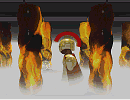Libertas Mentis [Latin] – Freedom of the Mind
I distrust those people who know so well what God wants them to do, because I notice it always coincides with their own desires. - Susan B. Anthony
The Unchained Mind
Freethought is the commitment to forming beliefs through reason, skepticism, and independent inquiry, rejecting authority or tradition—particularly religious dogma—unless supported by evidence. It champions intellectual freedom, encouraging individuals to question assumptions and seek truth without constraint. This article, the tenth of 17 in our 18-part secularism series, explores freethought’s historical roots, core principles, global variations, and contemporary relevance, examining its role in fostering a culture of critical inquiry. Susan B. Anthony’s sharp critique of dogmatic certainty frames freethought as a rebellion against imposed beliefs, yet it raises questions: Does it empower truth-seeking, or does it risk fostering contrarianism for its own sake?
Freethought differs from agnosticism’s suspended judgment or humanism’s ethical focus by emphasizing the process of inquiry over specific conclusions. It aligns with secularism’s reliance on reason but contrasts with Laicism’s institutional focus or neutrality’s impartiality by actively challenging authority. By prioritizing evidence over doctrine, freethought seeks to liberate minds from intellectual constraints. This approach invites scrutiny: Can freethought sustain a cohesive society, or does it risk undermining shared values? This exploration maps freethought’s place in the secular landscape, probing its strengths and challenges.
Historical Context
Freethought traces its roots to ancient skeptics like Socrates, who questioned traditional beliefs through dialogue. The Enlightenment galvanized freethought, with figures like Thomas Paine and Voltaire rejecting religious orthodoxy in favor of reason. In the 19th century, Robert Green Ingersoll, the “Great Agnostic,” popularized freethought in America, advocating for science and liberty over superstition. The 20th century saw freethought influence secular movements, from Britain’s Rationalist Press Association to India’s rationalist societies challenging caste and religion. Today, freethought drives debates on science, education, and free speech, though critics argue it can veer into dogmatic skepticism.
Core Principles
Freethought’s essence rests on:
- Independent Inquiry: Forming beliefs through personal reasoning, not authority.
- Skepticism: Questioning claims, especially religious or dogmatic, without evidence.
- Intellectual Freedom: Defending the right to think and speak without censorship.
Unlike anti-clericalism’s focus on opposing clergy or atheism’s rejection of deities, freethought prioritizes the process of questioning itself. Its strength lies in its openness, but Anthony’s critique of self-serving certainty suggests a challenge: Can freethought avoid becoming its own rigid ideology?
Global Variations
Freethought manifests differently across cultures. In Europe, particularly the UK and Netherlands, it thrives in secular organizations promoting rationalism and free speech. In the U.S., freethought fuels advocacy for church-state separation, often tied to First Amendment rights. In India, freethought aligns with rationalist movements like those of Periyar, challenging religious and caste hierarchies. In China, state-endorsed skepticism of religion reflects a form of freethought, though limited by political control. These variations highlight freethought’s adaptability, but also its tensions—some see it as liberating, others as disruptive to cultural norms.
Modern Relevance
Freethought shapes contemporary society, from campaigns for science-based education to advocacy for free expression in digital spaces. It drives skepticism of pseudoscience, religious extremism, and authoritarianism, as seen in global movements for critical thinking and secular governance. In debates on AI ethics or climate policy, freethought emphasizes evidence over ideology. Yet critics argue it can foster cynicism, undermining communal values, or alienate those who find meaning in tradition. Freethought’s challenge is to promote inquiry without eroding social cohesion, ensuring, as Anthony’s quote implies, skepticism serves truth rather than self-interest.
Critiques and Challenges
Freethought’s emphasis on skepticism can be its limitation. Critics argue it risks fostering contrarianism, where questioning becomes an end in itself, or alienates communities reliant on shared beliefs. In extreme forms, it may mirror the dogma it opposes, as seen in rigid rationalist circles. Proponents counter that freethought empowers individuals to challenge oppression and superstition, fostering progress. The tension lies in balancing intellectual freedom with respect for cultural bonds, ensuring freethought liberates without dividing.









